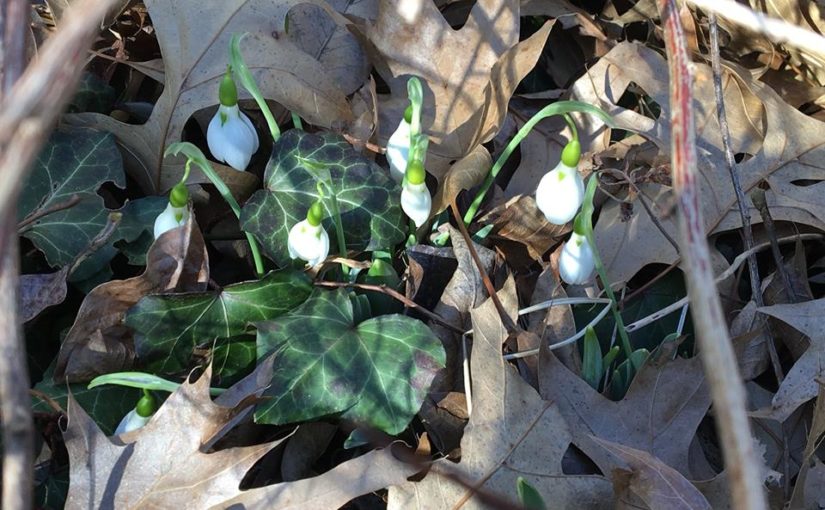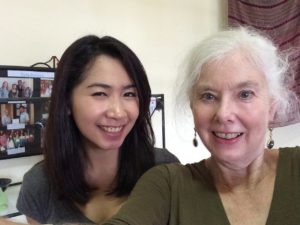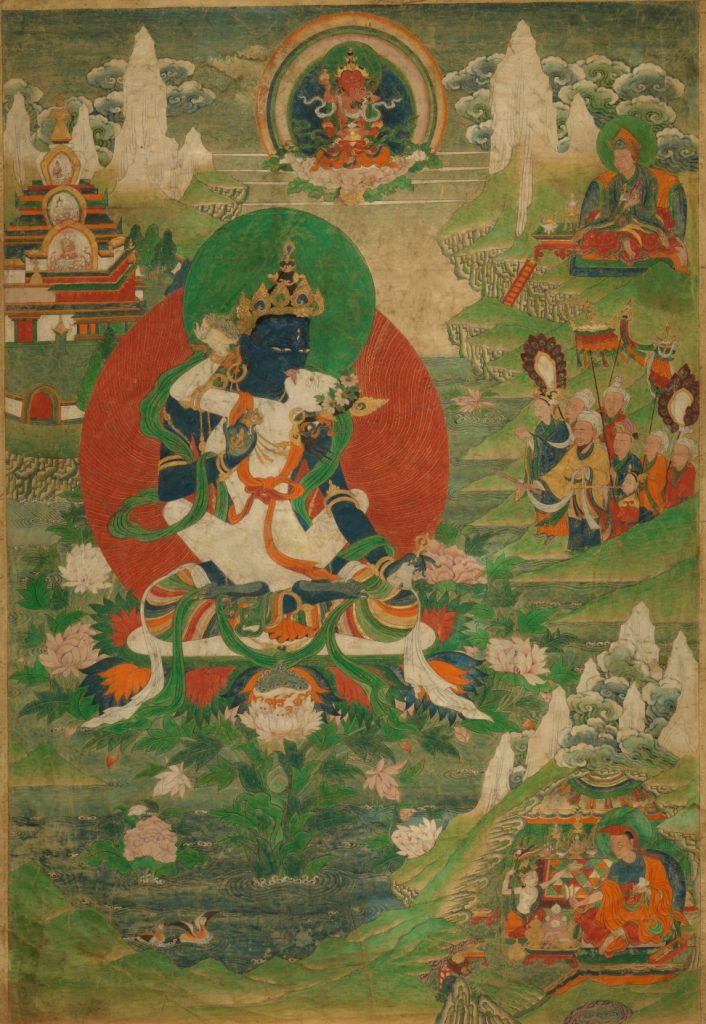Last weekend, six members of our nature preserve stewardship committee met at the preserve to do some trail grooming. We split off into three separate groups, each heading off to a different trail. One woman, Dorrie, and I took what’s called the White Trail. She had a weed-whacker for trimming the trail, and I had a small can of white paint to brighten up the markers on the trees.
Marking thin white stripes on trees, so the next mark is visible from the one you’re at is a lot less time-consuming than swinging a heavy, gas-powered machine back and forth to cut low vegetation. I got to the place where the White Trail meets the Blue Trail, which is where Dorrie and I had agreed to stop. And then, because I had long since ceased to hear the roar of her weed-whacker, I decided not to wait for her, but to turn around and paint the other side of the trees as well, for anyone hiking from the opposite direction.
After several minutes, I met up with Dorrie. (She was covered in flecks of grass, and she told me I was covered in paint.) She told me she was going to have to stop soon, because she was just about out of gas. But, since I was far from running out of paint, I went ahead and marked trees all the way up to the trailhead.
When I met up with Dorrie again, I told her I couldn’t help wishing that there were more tasks in life when you knew you were finished simply because you ran out of gas or some other obvious sign of conclusion. As someone who’s been self-employed for more than forty years, I never know when to stop. When one thing is finished, I plunge on to the next one.
I wish my computer would run out of gas now and then.
What I’m reading
I’m almost finished rereading East of Eden by John Steinbeck. which I read enthusiastically when I was sixteen. It really is a man’s book, something I didn’t know when I was a teenager, because so much literature was written by men about men. I’m looking forward to reading Glenn Albrecht’s new book, Earth Emotions, about the human response to nature in its wholeness and its brokenness.
Savory Moment
I was enchanted during a walk the other day by the behavior of animals in a large pasture at a neighboring farm. The cows munched and stared at me. Two horses ignored me and one came trotting over to say hello. A donkey was making its way along a patch of grass and couldn’t be bothered with anything else. And a flock of sandpiper-ish birds rattled up from a bordering bush and screamed chu-chu-chu across the sky.
Upcoming Schedule
July 12-14 I’ll once again be part of an incredible literary event in this rural corner of Pennsylvania. It’s called The Gathering and in the past 12 it’s featured writers like Diane Ackerman, Tracy K. Smith, and Salman Rushdie. This year the theme is “Refugees and Immigrants” Who are They and Who am I?” I’ll be leading an experiential (writing and solo walking) called “Moving with the Ancestors.”


